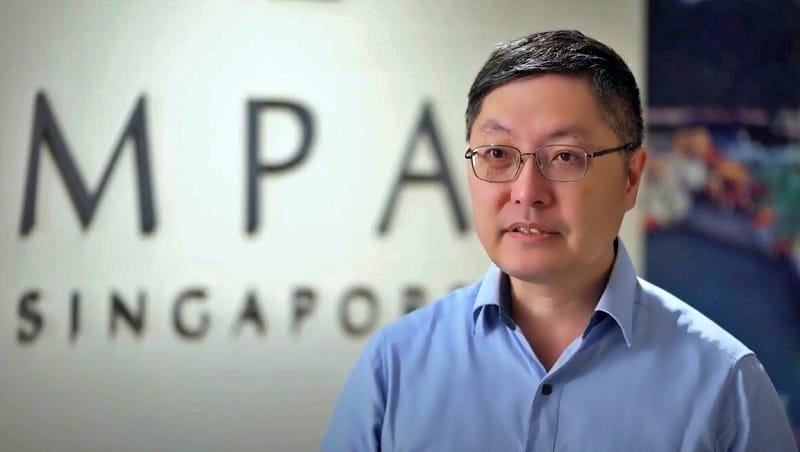As of April 1, 2025, Singapore’s Maritime and Port Authority (MPA Singapore) will mandate the adoption of digital bunkering services and the issuance of electronic bunker delivery notes (e-BDNs) as the default method for all bunker suppliers. This new requirement, announced during the 23rd Singapore International Bunkering Conference (SIBCON) in October 2024, follows successful trials conducted with the top 10 bunker suppliers in Singapore. The move aims to streamline the bunkering process, reduce paperwork, and promote efficiency in the industry.
Table of Contents
Benefits of Digital Bunkering
Digital bunkering offers numerous advantages by eliminating manual processes and digitizing key documents, such as the electronic bunker delivery note (e-BDN), requisition forms, checklists, and other essential paperwork. This initiative is projected to save the industry around 40,000 man-days annually, greatly reducing administrative workloads and operational delays.
By facilitating efficient data sharing between bunker buyers and suppliers, digital bunkering improves accountability, compliance with regulations, and error reduction. It also enables early detection of potential fraudulent activities, further promoting transparency in the industry. Additionally, digital bunkering contributes to a more environmentally friendly process by reducing paper usage.
In July 2023, the International Maritime Organization (IMO) formally recognized both hard copy and digital bunker delivery notes as valid documentation under MARPOL Annex VI (MEPC.1/Circ.795/Rev.8). Singapore became the first port globally to implement e-BDN, officially launching its digital bunkering initiative in November 2023, cementing its role as a trusted and efficient global bunkering hub.
MPA Singapore’s Whitelists Digital Bunkering Solutions
To ensure the digital solutions used by bunker suppliers conform to the highest standards, MPA has developed a whitelist of approved digital bunkering solutions. These solutions meet stringent criteria, including bunkering standards, cybersecurity, risk management, and regulatory reporting requirements. The approved solution providers include;
- Angsana Technology Pte. Ltd.
- ZeroNorth (BTS Pte. Ltd.)
- Bunkerchain Pte. Ltd.
- ADP Clear Pte. Ltd.
- TradeGo Pte. Ltd.
Each provider offers unique solutions to streamline and secure the bunkering process, ensuring both bunker suppliers and bunker buyers benefit from digital innovations.
The list of whitelisted solutions will be regularly updated to reflect the latest advancements and compliance with MPA’s standards. Bunker craft operators, suppliers, and buyers are encouraged to conduct due diligence before adopting any of these digital bunkering solutions.
Upcoming Developments
To further enhance transparency and integrity in the bunkering industry, MPA will introduce a centralized e-BDN record verification system by 2025. This system will allow key stakeholders to verify the authenticity of e-BDNs received from bunker suppliers, cross-referencing the data with information transmitted directly to MPA.
Moreover, Enterprise Singapore and the Singapore Standards Council (SSC) will launch a new standard, “Specification for Digital Bunkering Supply Chain Documentation,” aimed at ensuring consistency and interoperability across digital systems. This will facilitate smoother transactions through trusted, verifiable digital documents. Additionally, the revised Singapore Standard (SS) 648 Code of Practice for Bunker Mass Flow Metering will include new data integrity and transmission requirements to support the evolving digital landscape in the bunkering industry.
Reduction of Mass Flow Meter (MFM) Verification Frequency
In addition to digitalization, the MPA will reduce the required frequency of mass flow meter (MFM) verification from twice to once a year, effective April 1, 2025. This change aligns with the updated SS648:2024 standards and is expected to result in significant cost savings for the industry, reducing expenses by approximately $300,000 annually. Despite this reduction, risk-based audits will continue to ensure compliance and safeguard the integrity of bunkering operations.
About Singapore’s Role in Global Bunkering
Singapore remains the world’s largest bunkering hub, with over 49 million tonnes of marine fuel sold annually. By implementing cutting-edge digital bunkering practices and maintaining strict regulatory standards, the city-state continues to lead the industry in innovation, transparency, and operational efficiency.
This transition to digital bunkering is set to enhance Singapore’s competitive edge, benefiting both the maritime and energy sectors by reducing operational costs, improving sustainability, and ensuring compliance with global standards.
Source MPA Singapore

